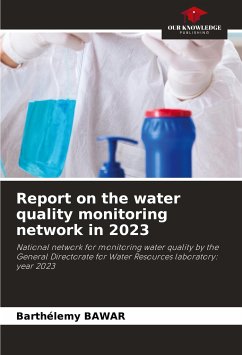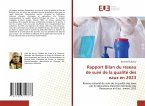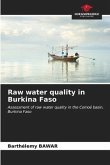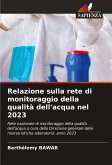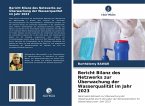This report highlights the crucial importance of monitoring water quality in Burkina Faso, due to multiple sources of pollution such as industrial discharges, artisanal mining and the intensive use of chemical fertilizers in agriculture. These factors compromise the physico-chemical quality of the water, making it unsuitable for a variety of uses. Since 1992, a national water quality monitoring network, initially consisting of 32 points, has been in place, but has proved insufficient in the face of increasing pollution. In 2018, an expansion of the network to 80 sites was undertaken, but security constraints have prevented some points from being monitored in 2023. The report highlights the difficulties associated with data collection, processing and use, while identifying the needs to ensure adequate monitoring of raw water quality at national as well as cross-border level.
Bitte wählen Sie Ihr Anliegen aus.
Rechnungen
Retourenschein anfordern
Bestellstatus
Storno

